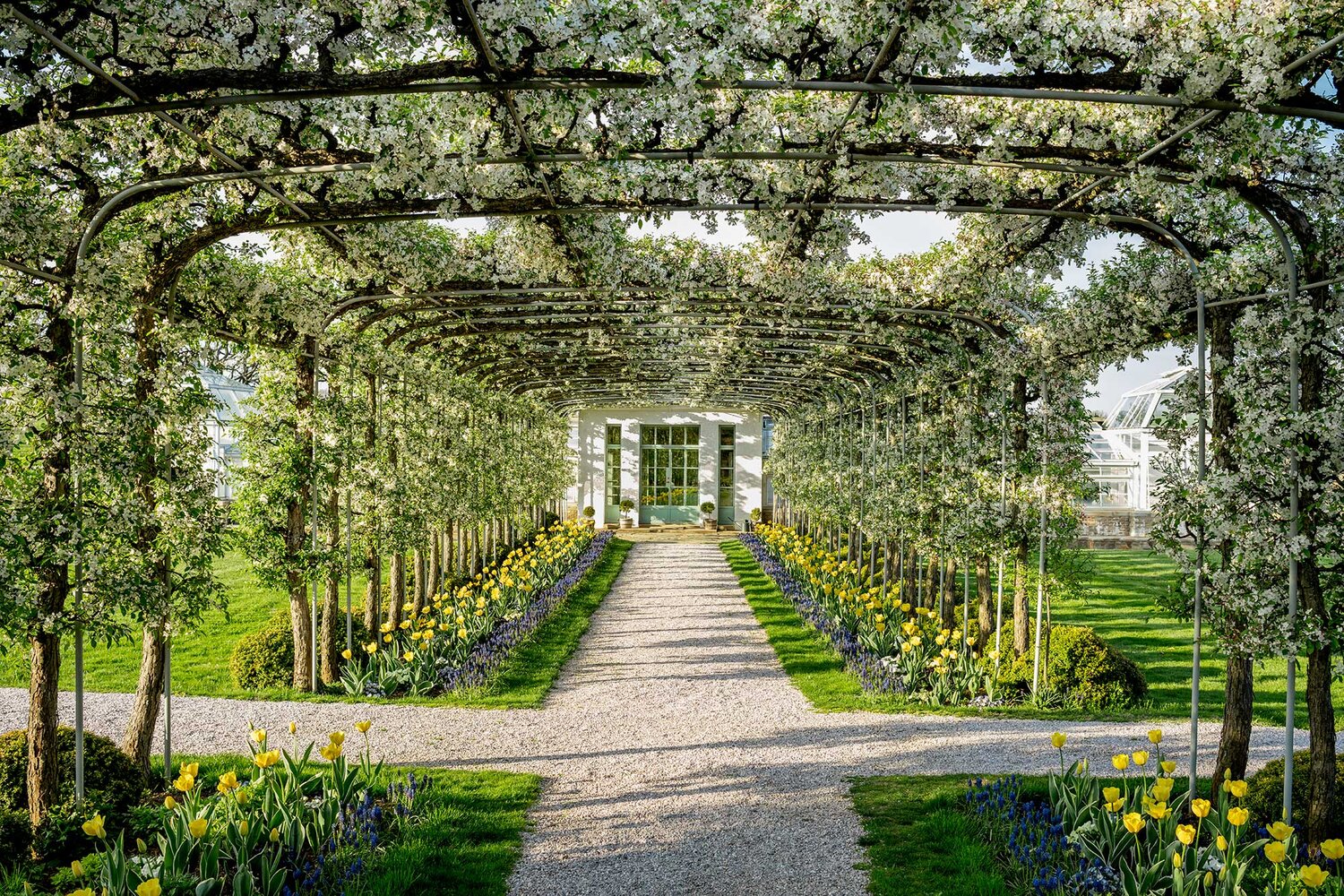Workshop on the Diversity & Dynamics of Terrestrial Herbs in Forests

Weds, April 12–Sat, April 15, 2023
Location: Oak Spring Garden Foundation, Upperville, Virginia, USA
This 4-day workshop will focus on research priorities, testable hypotheses, sampling methods, and analytical techniques, considering only the ecology, diversity, and dynamics of terrestrial understory herbaceous plants in forests. We plan to broaden the scope of future workshops to epiphytes, vines, and other life forms in future.
Do you want to attend the workshop?
We would love to hear from you if you want to attend the workshop. Attendance requires an application, because space is limited. We encourage early career investigators, students, and members of under-represented groups to apply.
If you cannot make it to the workshop in person, there are plenty of opportunities to contribute remotely and asynchronously to the survey and products.
Application materials
- Name, position, and institution
- Brief CV
- Brief details of interest in and potential contributions to the workshop
- In-person or remote participation.
Please send your application as a single PDF to: forestherbdiversity@gmail.com
Deadline: 17 Feb 2023.
We will notify you by 28 Feb if you can participate.
Workshop Policies
The workshop will adhere to NSF policy on harassment-free environment, Yale University’s policies on sexual harassment and assault, and the Ecological Society of America’s code of conduct. More details here.
Agenda for the in-person workshop
Weds 12 April: Sampling issues
- Participants arrive
- Welcome (logistics, accommodation, DEI, workshop rules of engagement, …)
- Discussion of issues of sampling herbaceous plants in forests
- Review of relative importance of issues for sampling, analysis, and questions
Thurs 13 April: Research priorites
- Review of broad survey of research priorities
- Refine survey response and identification of research priorities
Fri 14 April: Survey protocols
- Review results of day 2, and finish identification of research priorities
- Review of different survey protocols and analytical methods
- Develop pros and cons of each method
- Develop standardized survey methods (c.f. ForestGeo tree plots)
Sat 15 April: Workshop products
- Outline manuscripts and protocols
- Assign lead authors and criteria for contributing co-authors
- Develop work plan, deadlines for drafts and final manuscripts
- Participants leave
Identifying research priorities and testable hypotheses on the diversity and dynamics of herbaceous plants in forests
After collecting questions through the survey, we will carry out an iterative process of voting and discussion (depending on the number of responses received in the survey) at the workshop to produce a final list of the top research questions.
The initial questions received will be collated and analyzed by the organizing team. The questions will be categorized into themes, with duplications and redundancy removed as much as possible. A report will be sent to each of the participants in advance of the workshop.
Issues and methods for the ecological sampling and analysis of herbaceous plants in forests
There are many challenges involved both with physically surveying herbaceous plants, as well as modeling and predicting their dynamics, to answer ecological questions.
Different sampling protocols are appropriate for different modeling approaches at different spatial and temporal scales, ranging from detailed demographic models that require accurate estimates of seed production, clonal growth and survival as well as immigration and emigration to broad regional surveys making use of incidence data from thousands of local species lists.
Studies of most herbaceous plants (often arable weeds or crops) are often at small spatial and temporal scales, focus on parameterizing demographic models, and are time-intensive and expensive. Recent work has used different sampling methods to parameterize new modeling approaches, with increasing success. Building on our survey, we will develop a toolkit of sampling protocols and modeling approaches that match the scale and details required for the identified research priorities.
Venue
The workshop will be held at Oak Spring Garden Foundation, Upperville, VA, USA.
Accommodation
Accommodation and food are covered by the NSF grant.
Travel
The nearest airport is Dulles International (IAD), in Washington D.C. Transport from the airport to OSGF can be arranged via taxi, Uber, etc.
Funding
Accommodation, food, and within-US travel during the workshop are covered by the NSF grant.
Accepted participants will be responsible for making arrangements to arrive at OSGF. We can reimburse you for domestic US travel, so please keep receipts. If paying out-of-pocket and waiting for reimbursement would present a financial hardship, please let us know.
Contact
Please email us at forestherbdiversity@gmail.com if you have any questions.

